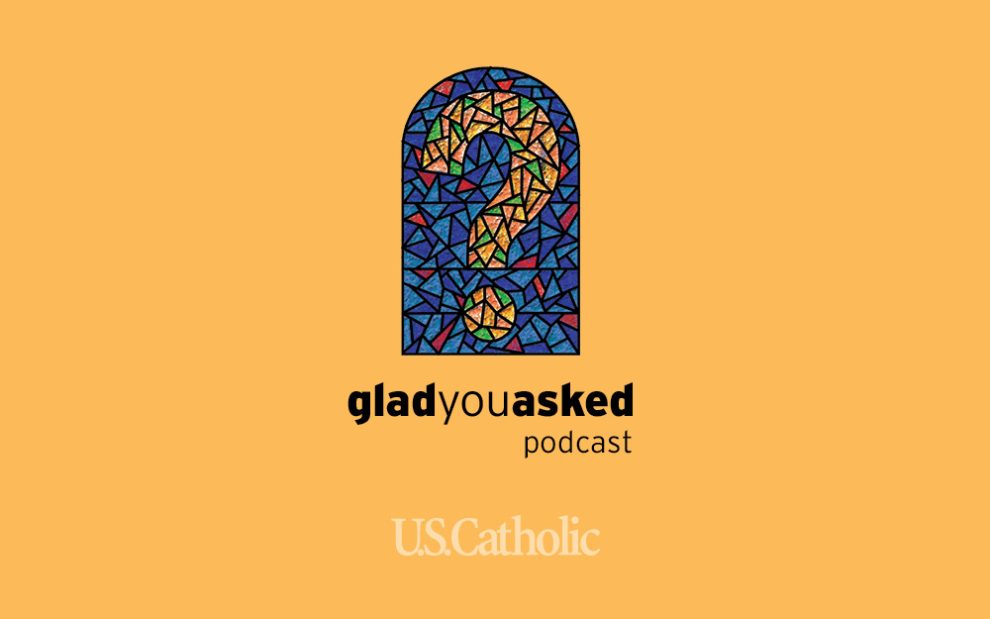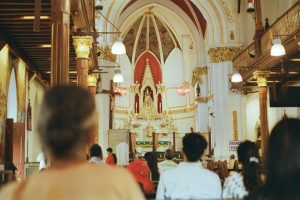Listen on: Spotify | Apple Podcasts
Catholics have frequently taken a stand against civil authorities, even breaking the law, to remain true to their faith.
The early martyrs refused to worship the Roman gods and were murdered for it. Saints have stood up against oppressive authorities, helped the innocent escape unjust laws, and held onto their faith even when it was illegal. Catholics were murdered for opposing the Nazi regime, and persecuted for their work in civil rights. Many Catholics who grew up with stories of these heroes of faith and justice took away the implicit lesson: Sometimes being a follower of Jesus means breaking the law.
If these stories count as instances of civil disobedience, does that mean civil disobedience has a place in the Catholic tradition? Does the official magisterium of the church have any teachings supporting–or critiquing–civil disobedience? What is civil disobedience, anyway?
To answer these questions, the Glad You Asked hosts talked to Jack Downey, a scholar of civil disobedience who is also the John Henry Newman Professor of Roman Catholic Studies and a professor of religion and classics at the University of Rochester.
Downey’s scholarship focuses on contemporary justice movements, liberation theology, religious history, and contemplative traditions. He is the author of The Bread of the Strong, a study of contemplative influences on Dorothy Day and the Catholic Worker movement.
You can learn more about this topic, and read some of Downey’s work, in these links.
- “We are all called to protest, says this civil rights lawyer,” A U.S. Catholic interview
- “Holy disobedience,” by Jim Forest
- “Traditional Disobedience: Renewing the Legacy of Catholic Activism,” by John Gehring
- “The Unlikely Catholic Activist Who Believed in Civil Disobedience ‘Animated by Love’,” by John Loughery
- “A Metaphor for the Planet,” by Jack Downey
- The Bread of the Strong: Lacouturisme and the Folly of the Cross, 1910-1985, by Jack Downey (Fordham University Press, 2015)
Glad You Asked is sponsored by the Claretian Missionaries USA, a congregation of Catholic priests and brothers who live and work with the most vulnerable among us. To learn more, visit claretians.org.














Add comment